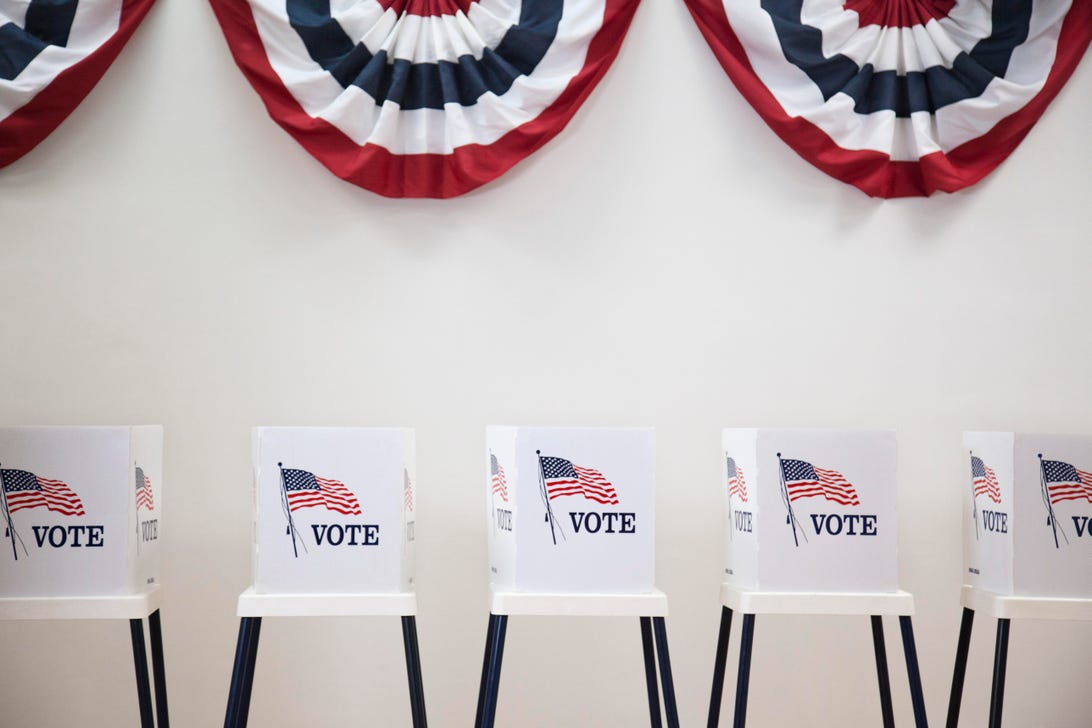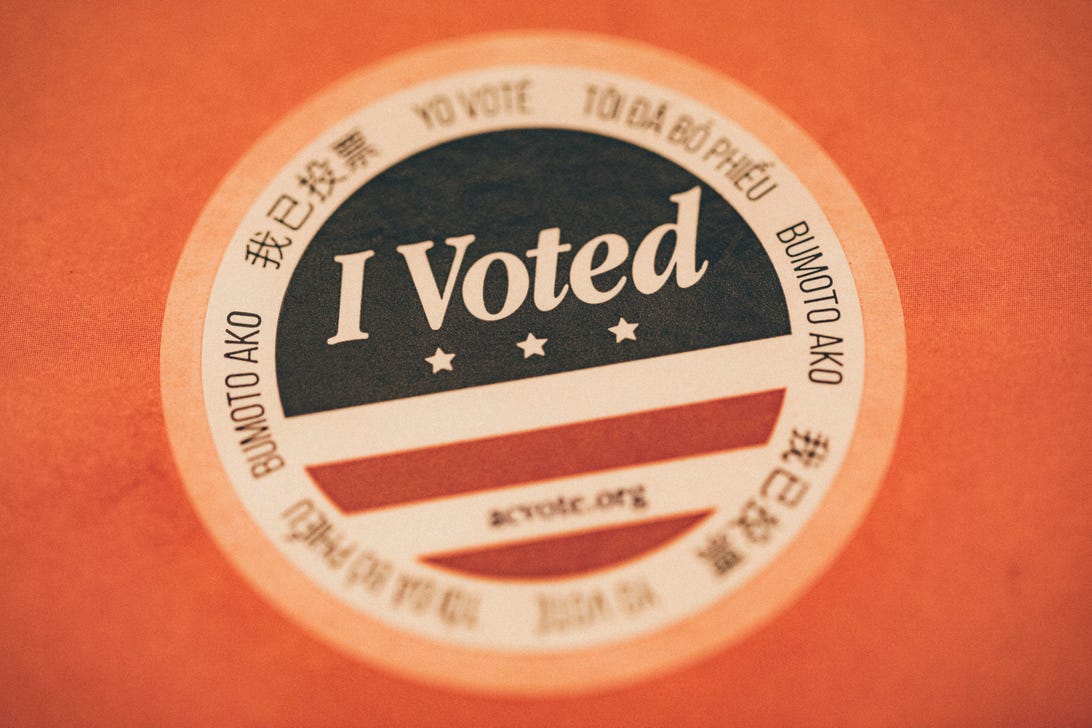The Senate voting rights bill may be dead. What’s next for voting reform?

The fight over voting reform won’t end this month even if the Senate voting rights bill doesn’t go up for a vote.
Getty Images
Democrats are determined to bring forward the Freedom to Vote: John R. Lewis Act for debate on the Senate floor this week. The wide-ranging bill would, among other things, increase penalties for voter intimidation, restore voting rights to former felons and make Election Day a federal holiday.
But the nearly uniform consensus is that without altering filibuster rules — part of the Senate debate process — the measure is dead in the water.
“The honest-to-God answer is, I don’t know whether we can get this done,” President Joe Biden said Thursday,
Here’s what you need know about the bill’s current status, why supporters feel voting rights are at a critical juncture and what could happen if it fails in the Senate.
For more, learn about how voting has evolved over the centuries, how claims of massive voting machine fraud in the US in 2020 lacked merit and how to report voter intimidation.
Why are Democrats moving the Senate voting rights bill forward if the math doesn’t add up to its passage?
Without Sens. Kyrsten Sinema (D-AZ) and Joe Manchin (D-WV) supporting altering or demolishing the filibuster, most believe the current voting rights bill has no future.
So why spend the political capital? For some, part of the continued push is to force senators to go on the record with their vote, to uphold accountability for posterity.
“I have said it and I’m going to say it again — we need to know who is with us and who is not, so we will know how to conduct ourselves going forward,” House Majority Whip James Clyburn (D-SC) said Sunday on NBC’s Meet the Press. “We operate now in the blind. Let’s have these votes.”
Sean Morales-Doyle, acting director of the Voting Rights and Election Program at the Brennan Center, said he believes Biden and the majority of Congress have a mandate from the electorate, especially minority voters, to defend and expand voting rights.
“They were sent to Washington to do this,” he said. “They’re hearing from their constituents every day how important it is that this happens.”
Why are voting rights such a hot topic right now?
Democrats, including Biden, have made passing voting rights legislation a key issue this congressional session after disproven claims of voter fraud in the 2020 presidential election led at least 19 states to enact dozens of restrictive voting laws.
“In the last few years we’ve seen an unprecedented attack on our democracy and voting rights,” Morales-Doyle said. “A wave of restrictive voting laws across the country at unprecedented rates, as a result of the proliferation of this lie that the 2020 [presidential] election was stolen.”
He added that the same rhetoric about voter fraud has motivated threats and attacks on election officials as well as the attack on the Capitol building on Jan. 6, 2021.
Regardless of how the Senate vote plays out, Democrats have promised to continue to fight for voting reform.
“We’re going to keep fighting for voting rights and it is important for us to move forward,” Sen. Raphael Warnock (D-Ga.) told reporters last week. “This is a defining moment. I think everybody has to be heard on the record. And we’ll keep talking to our colleagues and we’ll see what happens.”
What else can Democrats in Congress do to pass the bill?
Some Democrats have floated the idea of forcing Republicans to literally hold the Senate floor continuously with a “talking filibuster,” filling time with lengthy speeches and procedural motions.
If opponents exhaust themselves in the coming days or weeks Senate Majority Leader Chuck Schumer (D-NY) could call for a simple majority vote rather than a formal procedural vote, known as a cloture.
A change to the filibuster wouldn’t be needed to pass the bill by simple majority “if the debate is over,” Sen. Tim Kaine (D-VA) told reporters last week, The Hill reported. “Theoretically, you do not need a rules change to pass a bill that’s on the floor, you just have to allow debate to occur.”
Other experts believe the best option for election reform is a change to the Electoral Count Act of 1887, or ECA, which governs how Congress validates electoral votes.
“Modernizing the ECA may well be the single most important step Congress can take to prevent a crisis in the next contested presidential election,” according to a statement from the National Task Force on Election Crises.
Morales-Doyle agrees the ECA needs to change — and that there’s bipartisan support for it — “but it’s not even close enough to what we need to protect our democracy. It’s one small point out of a whole spectrum of bigger issues.”

James Martin/CNET
He said not to count the Freedom to Vote: John R. Lewis Act out just yet.
“Democrats have sponsored voting rights legislation for years and it’s always been shut down,” he said. “Now we’re heading to a debate on voting rights on the Senate floor for the first time in decades.”
Biden hinted the bill could come back, possibly in an altered form.
“One thing’s for certain,” Biden said Thursday “Like every other major civil rights bill that came along, if we miss the first time, we can come back and try it a second time.”
Zack Smith, a legal fellow at Heritage Foundation’s Meese Center for Legal and Judicial Studies, believes Democrats could gain traction for the next go-around “by getting on board with some common-sense election integrity measures.”
“They want to ban state voter ID laws but the majority of voters don’t think that constitutes voter suppression,” Smith said. “In 2020, we saw very high turnout rates, the highest in 100 years. This idea that voter suppression is happening widespread is somewhat misleading.”
The battle for voter rights will move to the state level
With prospects for this current bill looking dim, Democrats who want to make inroads in voting reform will likely look to individual state legislatures.
“It was in the statehouses where legislators implemented what I consider common-sense measures,” Smith said. “So I think you’ll see a lot more action on the state level. It’s more arduous and time-consuming, but that’s what the Founding Fathers intended.”
Supporters of expanding voting rights managed to strip provisions from Georgia and Texas election measures that would have barred early voting on Sundays, Morales-Doyle said.
Prohibiting what’s called the “souls to the polls” strategy would have “very much targeted the Black community,” he said. “But it was stopped.”
The judiciary’s evolving role in expanding voter rights
Outside of the legislature, voting rights advocates have traditionally looked to the judiciary for relief.
The federal courts have not been so friendly to the cause of late: In July 2021’s Brnovich v. Democratic National Committee, the Supreme Court ruled Arizona was within its rights to both bar anyone but a family member from returning an early ballot for a registered voter and to discard any ballot submitted in the wrong county — even if it was for statewide or federal office.
Plaintiffs in the case held that those policies were racially motivated and in violation of both the Voting Rights Act and the Fifteenth Amendment.
On Thursday, Wisconsin circuit court judge Michael O. Bohren ruled that drop boxes for absentee ballots are illegal in the Badger State, overturning a years-old policy instituted by the Wisconsin Elections Commission.
The judicial branch could still very well be the next arena for voting reform: In November, the Justice…
Read More: The Senate voting rights bill may be dead. What’s next for voting reform?

